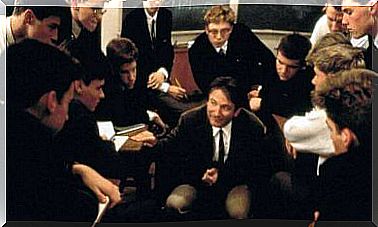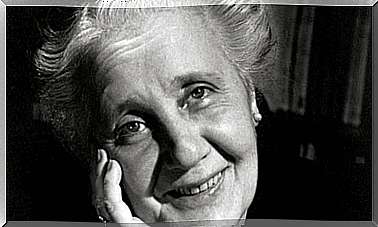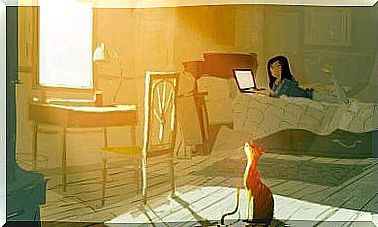Imre Kertész, Biography Of An Admirable Survivor
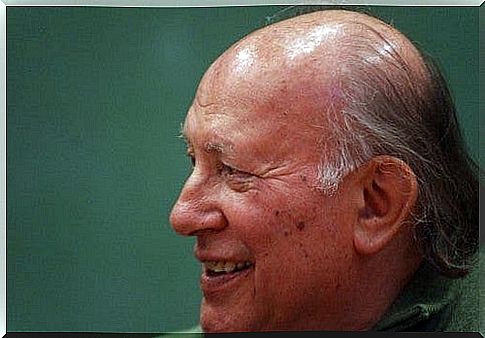
Imre Kertész was the most famous Hungarian citizen of the last century. This statement is linked to the fact that he was the only person of that nationality to receive a Nobel Prize. Even so, it was not his own country that recognized and supported his talent, quite the contrary. Hungary was a great burden for this impressive writer who nevertheless made his misfortune a literary masterpiece.
The universal fame of Imre Kertész is due to his novel ” Easy Rider” , c onsiderada the most important literary work about the Holocaust. It was translated into more than 20 languages and adapted for film in 2005 by Hungarian director Lajos Koltai, with a screenplay written by Kertész himself. It is noteworthy that Kertész refused to call this genocide a holocaust because he considered it a way of sanctifying it rather than denouncing its essence.
Imre Kertész’s work goes far beyond a denunciation of the atrocities that marked a before and an after in the world. His work is oriented, instead, to show that World War II was a predictable break with Europe’s highest values. And he achieves this through amusing, ironic and moving prose. Her real life, however, is equally or even more impactful than her own novel. After all, sometimes reality trumps fiction.
Imre Kertész, early years
Imre Kertész’s life was marked by painful experiences that began early. He was born on November 9, 1929 in Budapest, Hungary. He came from a family of non-practicing Jews who were well off financially. When he was 5 years old, his parents separated. Later, he was sent to a boarding school, where he completed his basic studies.
In 1940, Imre Kertész began high school, coinciding with the early stages of World War II. Anti-Semitism already occupied important sectors of Europe and, for this reason, the young Kertész was assigned to separate classes, in a space destined only for Jews. Thus, he attended the first years of high school feeling the weight of discrimination .
In 1944, he was deported to the Auschwitz concentration camp . At that time, I was just 14 years old. It is said that he himself did not know what that change meant. The Nazis forced young Jews to form a long line before distributing them. Imre Kertész spoke some German and understood that the soldiers were referring to him as saying he could be 16 years old.
When asked, without knowing why, he replied that this was his age. This little lie, this impulse that led him to deceive the soldiers, would save his life, as the minors were sent to the gas chamber.
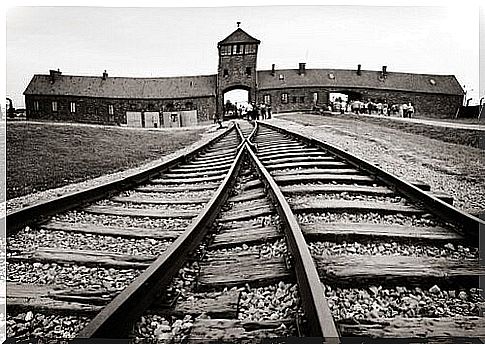
an indelible impression
Between 1944 and 1945, Imre Kertész was in Auschwitz and in Buchenland, from where he was released after the triumph of the Allies. The most disturbing thing about his experience is that he was reduced to the miserable condition of a prisoner in a concentration camp, neither his family nor himself actually practicing Judaism. After this event, he returned to his homeland, but none of his relatives had survived.
Later, he started working as a journalist and finished high school. However, he was fired and had to work for several years in a factory. The Stalinist regime in Hungary began and once again it was discriminated against. He was labeled “bourgeois” because of the wealthy background of his family. Therefore, the regime noticed him with distrust and caution. Finally, he was able to start working as a translator, which provided him with resources to survive without much difficulty.
Kertész has also composed comedies, commercials and other minor writings, but he has always been a passionate writer. In 1975, he published his great novel “Sem Destino”, which had no impact in his native country. For 20 years, Kertész lived in a 25 square meter apartment and wrote in a corner of the kitchen. Sometimes he also did it at the Luxor cafe he frequented. In those years, he even said: “I will always be a second-rate Hungarian writer, ignored and misunderstood”.
In the nineties, he was rediscovered by German publishers, who knew how to appreciate the great value of his work. So, his recognition was increased with the achievement of several international awards. After the fall of the communist regime in Hungary, Imre Kertész became more prolific and achieved greater comfort.
In 2002, he received the Nobel Prize for Literature, something that partly compensated for all his suffering. He died on March 31, 2016 in Budapest.
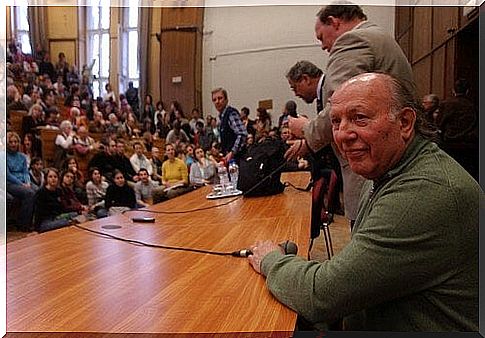
To complete
A small lie saved and changed the life of Imre Kertész. In a small moment, our lives can take a totally unexpected turn. When we hear stories from Holocaust survivors, we are surprised to see how some people have managed to survive so many atrocities. Imre Kertész not only survived the holocaust, but also faced new difficulties under a different regime.
Its origin was always judged, regardless of who was in power. His beginnings as a writer were not easy, but Kertész did not give up and used the most powerful weapon he knew: the word.


